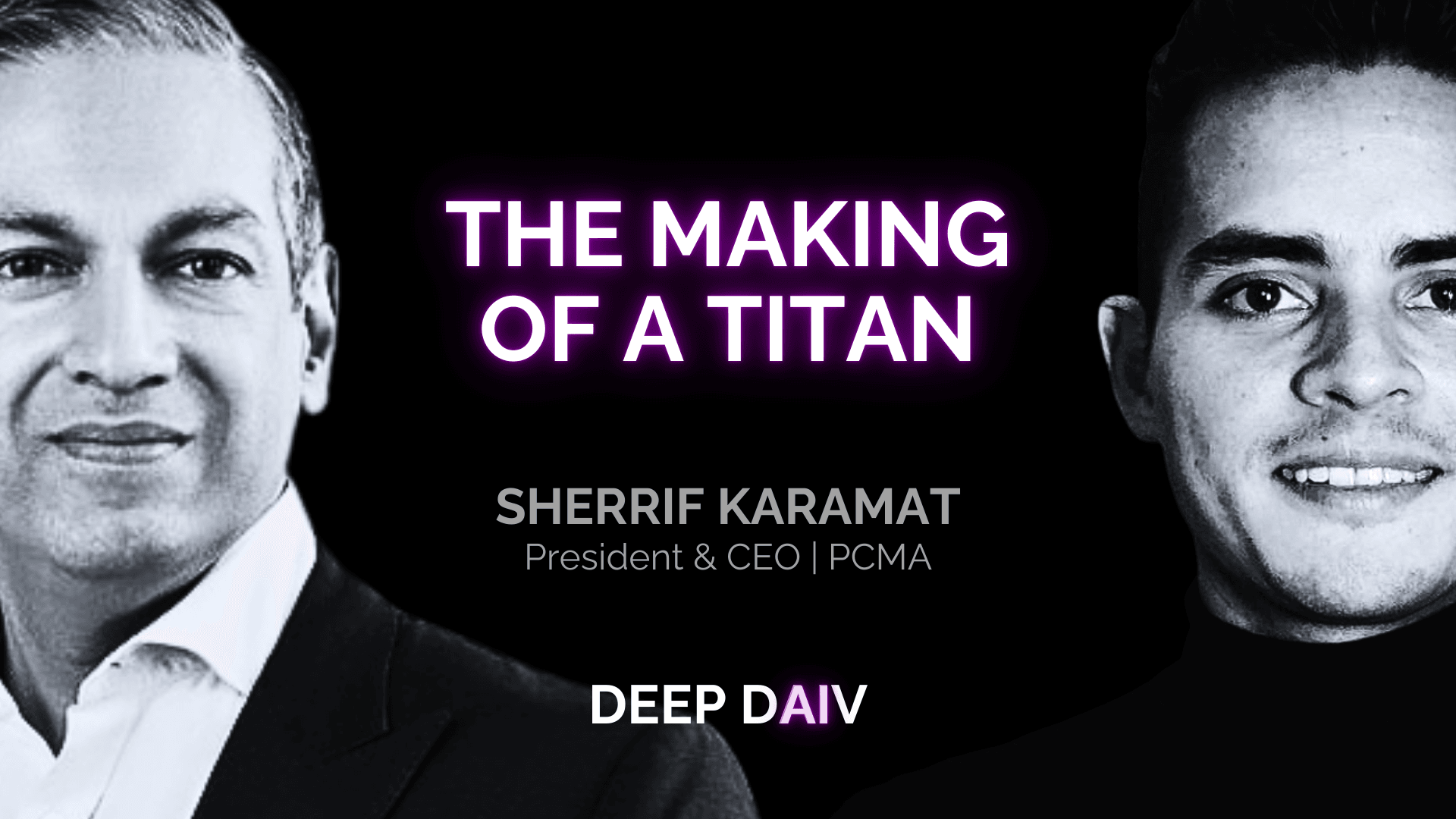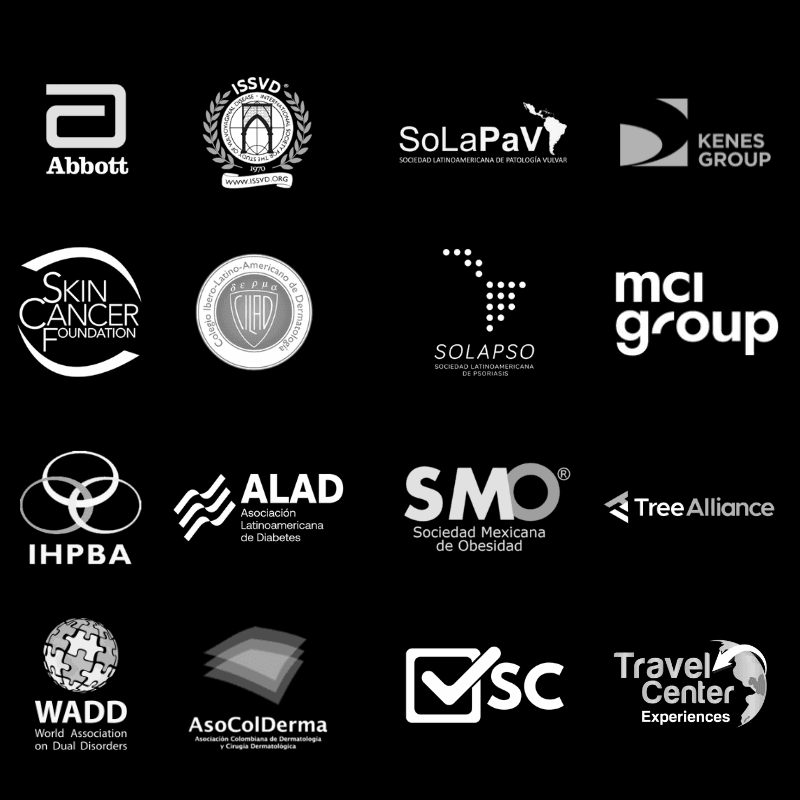The Leadership Challenge of a Rapidly Changing Industry
The business events industry is undergoing rapid transformation. In 2023, artificial intelligence was barely on the radar for many event professionals—yet by the end of the year, 68% considered AI a crucial tool for their business (PCMA, 2024). As technology accelerates, workforce dynamics shift, and sustainability pressures rise, event executives are required to lead with agility, vision, and impact like never before.
One leader who embodies this evolving leadership approach is Sherrif Karamat, President and CEO of PCMA , a global leader in business events. In our conversation, he shared invaluable insights on embracing change, leading with purpose, and orchestrating meaningful transformation in a volatile world. “Change is a constant,” Karamat reflects. “The key is not to focus on change itself, but to focus on vision and outcomes—leading people toward something inspiring.”
The interview that follows provides a firsthand look into his leadership philosophy, his personal journey from humble beginnings in Guyana to becoming a global industry leader, and his perspective on the future of events. After the interview, this article will expand on key themes, drawing from post-2023 leadership research, event industry trends, and real-world case studies to provide a strategic roadmap for CEOs navigating today’s evolving landscape.
Watch the full interview on YouTube or Spotify.
1. The Evolution of Leadership in a Post-2023 World
The traditional command-and-control leadership style is fading. Research shows a decisive shift toward adaptive, collaborative, and purpose-driven leadership.
- Adaptive Leadership: In an era of volatility, leaders must model agility, quickly responding to shifts while fostering resilience in their teams.
- Shared Leadership: The old notion of top-down decision-making is outdated. The most effective leaders today orchestrate contributions from across their teams, ensuring diverse perspectives drive innovation.
- Purpose-Driven Leadership: Stakeholders—employees, clients, and attendees—expect authenticity. Leaders who communicate a clear vision and values build trust and loyalty, even in times of uncertainty.
“We should never focus on change for the sake of it,” Karamat advises. “Instead, we must focus on vision and outcomes—leading people toward something inspiring rather than simply telling them they must change.”
A McKinsey & Company report echoes this, stating that successful CEOs today are those who focus on purpose and impact, rather than just bottom-line results.
2. Sherrif Karamat: Leadership in Action
Sherrif Karamat’s career is a masterclass in vision-driven leadership. As CEO of PCMA, he has expanded the association’s global footprint while redefining the role of business events.
- Vision Beyond Events: “Events are not just gatherings,” Karamat explains. “They are platforms for economic and social transformation.” Under his leadership, PCMA has positioned itself as a catalyst for change, influencing industries far beyond events.
- Stakeholder-Centric Strategy: Karamat emphasizes measuring success beyond numbers. “Are we truly providing value for our stakeholders?” he asks. His philosophy ensures that PCMA’s growth aligns with real impact rather than just revenue figures.
- Continuous Learning: He is a lifelong learner, holding an MBA and executive certifications from Harvard University , Massachusetts Institute of Technology , and Wharton Executive Education. His approach signals to his team that constant improvement is expected at all levels.
This commitment to vision, adaptability, and learning has made Karamat one of the most respected leaders in the event industry.
3. Technology and Innovation: Embracing AI with Strategy
AI and digital transformation are redefining events. But leaders must approach technology with intentionality rather than jumping on every trend.
- AI as an Enabler, Not a Replacement: Karamat notes that while AI can automate tasks and improve efficiency, human oversight is still essential. CEOs must ensure AI enhances creativity and engagement, rather than replacing personal connection.
- Data-Driven Event Strategy: Leaders who harness data for personalization—using AI to customize attendee experiences—will set their events apart.
- Ethical and Responsible Innovation: As technology reshapes the industry, privacy, security, and inclusivity must remain at the forefront of leadership decisions.
A forward-thinking CEO fosters a culture of experimentation with AI, piloting small projects before scaling innovations across an organization.
4. Sustainability and Global Impact: The CEO’s Responsibility
Sustainability is no longer optional. Event CEOs must lead with responsibility, ensuring their organizations contribute to environmental and social progress.
- PCMA’s Sustainability Leadership: Under Karamat, PCMA’s flagship event earned a Sustainable Event Standards Certification. “We now have the baseline to drive sustainability leadership,” he explains.
- Meeting Attendee Expectations: Research shows that eco-friendly events can reduce their carbon footprint by up to 30%—a win for both business and the planet.
- Global Thinking for a Global Industry: With events spanning multiple regions, leaders must cultivate cultural intelligence—understanding how attendee expectations vary across different markets.
Sustainability and global awareness aren’t just trends—they define the future of the industry.
5. Human-Centric Leadership: Empathy and Workforce Dynamics
At its core, the events industry is about people. Success hinges on strong relationships, engaged teams, and meaningful connections.
- Emotional Intelligence (EQ) is a Leadership Superpower: Studies show that 58% of job success is attributed to EQ, and 75% of Fortune 500 companies integrate EQ into their leadership training.
- Empathy Drives Performance: CEOs who practice active listening and genuine engagement foster higher innovation, inclusivity, and retention.
- The Future Workforce Demands Transparency: Gen Z and millennials expect leaders to champion diversity, flexibility, and well-being in the workplace.
CEOs must cultivate an organizational culture where employees feel valued and heard, ensuring long-term loyalty and performance.
EVENTS YOU CAN’T MISS


Join PCMA Latin America (LATAM) in the next PCMA Convening Latam Here.
6. The Art of Leading Change: Orchestrating a Bold Future
Leadership in the event industry is not just about adapting—it’s about leading with intention.
- Craft a Compelling Vision: CEOs must define and communicate a clear North Star for their organization, rallying teams and stakeholders around a shared mission.
- Empower Change-Makers: The best leaders don’t drive change alone—they identify and mentor key team members to champion innovation across departments.
- Foster a Learning Organization: Companies that invest in continuous education and cross-training are more agile and competitive.
As Karamat puts it, “I can’t predict the industry’s exact future, but I know that adaptability and purpose will define success.”
Leading the Events Industry into the Future
The global events industry is a $1.6 trillion enterprise, shaping economies and communities worldwide. In this evolving landscape, event CEOs must embrace leadership that is:
- Adaptive– Ready for change
- Visionary– Focused on impact
- Innovative – Leveraging AI and tech responsibly
- Sustainable– Driving long-term global value
- Empathetic – Putting people at the heart of leadership
By embracing these leadership pillars, event executives can transform challenges into opportunities—not just keeping pace with change, but shaping the future of the industry.
As we move forward, the best leaders will be those who inspire, empower, and innovate. The question is—how will you lead?






